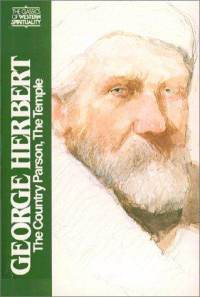 anglican,
anglican,  classics,
classics,  country parson,
country parson,  english,
english,  george herbert,
george herbert,  ministry,
ministry,  pastoral care,
pastoral care,  the temple in
the temple in  Book Review,
Book Review,  Counsel,
Counsel,  Leadership,
Leadership,  Ministry,
Ministry,  Theology
Theology In the past, I would post only book reviews pertinent to worship, music in the local church, or general Christian leadership and discipleship. Recently, I've been studying many more general topics as well, such as history, economics and scientific thought, some of which end up as reviews here as well.
 Friday, October 28, 2011 at 7:12PM
Friday, October 28, 2011 at 7:12PM  The Country Parson is a instructional book written from 17th century Anglican minister George Herbert in an attempt to describe and define the “perfect” country ministry. The same writer was a prolific poet and penned a generous volume of poems gathered and published as “The Temple”. Herbert is a brilliant academic figure, whose writing is surprisingly poignant and succinct, while remaining excellent pastoral guidance across the centuries.
The Country Parson is a instructional book written from 17th century Anglican minister George Herbert in an attempt to describe and define the “perfect” country ministry. The same writer was a prolific poet and penned a generous volume of poems gathered and published as “The Temple”. Herbert is a brilliant academic figure, whose writing is surprisingly poignant and succinct, while remaining excellent pastoral guidance across the centuries.
Much in the tradition of Gregory the Great, whose “pastoral care” manual gave very specific and practical admonitions about human behavior, Herbert helps us understand how to properly lead the life of an Anglican priest and how it can be properly administered in a country parish. This is not so much an examination of the parishioner as it is a prescriptive agenda for various circumstances that may be encountered by the priest.
What is refreshing about Herbert immediately is his humility. Though the book is little more than 60 pages, he starts out with this abrupt stance to those who would theorise the ministry from an academic understanding:
Of those that live in the Universities, some live there in office, whose rule is that of the Apostle; Rom. 12.6. Having gifts differing, according to the grace that is given to us, whether prophecy, let us prophecy according to the proportion of faith; or ministry, let us wait on our ministring, or he that teacheth, on teaching, &c. he that ruleth, let him do it with diligence, &c. Some in a preparatory way, whose aim and labour must be not only to get knowledge, but to subdue and mortify all lusts and affections: and not to think, that when they have read the Fathers, or Schoolmen, a Minister is made, and the thing done.[1]
Such clarity of theology and praxis is still appropriate advice for us today. Herbert’s lessons to the pastor already serving are no less profound. One great example is his elevation of integrity as a duty for the minister to gain a hearing with his parishioners:
because Country people (as indeed all honest men) do much esteem their word, it being the Life of buying, and selling, and dealing in the world; therfore the Parson is very strict in keeping his word, though it be to his own hindrance, as knowing, that if he be not so, he will quickly be discovered, and disregarded: neither will they believe him in the pulpit, whom they cannot trust in his Conversation.[2]
Herbert teaches the minister to take the congregation as his barometer in all things. Preach using analogies they understand. Expound the textual meaning of a scripture, then communicate an application. Don’t preach too long. Divide your time up across a month and visit a quarter of the people in your congregation each week, thus seeing everyone personally in the span of each month in their own homes. Such practical wisdom is found on every page of Herbert’s book. All of this may sound mechanistic, but to a minister who is learning the craft of caring for people, it can be sound guidelines for beginning and understanding excellent common practices that can help frame a lifetime of ministry.
For sure, Herbert’s work is not to be taken as a exact template for every ministry or every circumstance. This is not his intention and we shouldn't be saddled by such expectations any more than us writing a book of practical wisdom for pastors today would be seen as useful in every aspect to ministers 300 years later from us. Accept and use what is good, but do not dogmatically undertake the book as a present-day regimen for all ministries.
Amazon Product Link: http://amzn.to/vLCyzi
Review by Kim Gentes
[1]George Herbert, “George Herbert: The Country Parson, The Temple”, (Ramsey, NJ: Paulist Press 1981), Pg. 55
[2]Ibid., Pg. 57
 anglican,
anglican,  classics,
classics,  country parson,
country parson,  english,
english,  george herbert,
george herbert,  ministry,
ministry,  pastoral care,
pastoral care,  the temple in
the temple in  Book Review,
Book Review,  Counsel,
Counsel,  Leadership,
Leadership,  Ministry,
Ministry,  Theology
Theology